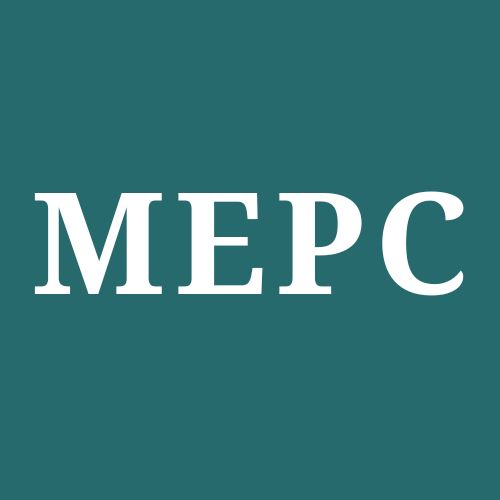Event Information
The Middle East Policy Council held its 114th Capitol Hill Conference on Thursday, October 26, 2023, on the topic “AI in the Middle East: Opportunities & Challenges.” The event took place in the Capitol Visitors Center in the U.S. Congress.
Ambassador Gina Abercrombie-Winstanley (President, Middle East Policy Council; former U.S. Ambassador to Malta) introduced the event and Ms. Bassima Alghussein (Executive Director, Middle East Policy Council) was the moderator. The panelists were: Mr. Jerome DuVal (VP and Chief Operating Officer, Verbosity, LLC; Certified Economic Developer), Mr. Mike Sexton (Senior Policy Advisor for Cyber and AI, Third Way; Co-Editor, Cyber War and Cyber Peace), and Mr. Mohammed Soliman (Director, Strategic Technologies and Cyber Security Program, Middle East Institute; Manager, McLarty Associates).
As outlined by Ambassador Gina Abercrombie-Winstanley, the utilization of AI in the Middle East is quickly expanding. Kuwait has integrated it into medical diagnostics. Morrocco and Israel signed an MOU to establish a center of excellence to focus on aeronautics and artificial intelligence research. Bahrain has set itself up as a hub for AI innovation and collaboration, and Egypt has launched the National Artificial Intelligence Strategy to support the nation’s Sustainable Development Goals. Domestically, U.S. President Joe Biden issued an Executive Order on Safe, Secure, and Trustworthy Artificial Intelligence on October 30, 2023, days after the Middle East Policy Council hosted its conference.
Mr. Jerome DuVal opened the discussion by describing his business, Verbosity, a certified minority business enterprise that leverages geofencing technology to digitize outdoor spaces. With the integration of AI, Verbosity automates data analysis to generate insight that can help clients make better informed decisions. Mr. DuVal outlined the concerns of biased algorithms, noting that AI relies solely on potentially inadequate data and outcome optimization to make decisions. He assessed that the potential impact of AI on the global economy is staggering and could reach a value of $15.7 trillion by 2030. A prime example of the utilization of AI for a sustainable and cognitive future is Saudi Arabia’s NEOM project, a response to the challenges faced by urban areas that seeks to inspire an alternative way of living. While AI surpasses human intelligence in specific tasks such as rapid decision-making, Mr. DuVal noted, autonomous vehicles and systems could have a substantial impact on defense capabilities and operations in conflict zones, including in the Middle East; accordingly, the utilization of this technology raises ethical questions about civilian safety amid the potential for unintended consequences. Mr. DuVal called on industry and civil society leaders to invest in solutions and strategies, including AI, that can combat disinformation.
Mr. Mike Sexton presented the ongoing debate in the technology sector on AI’s self-improving ability and its challenges and assets. While acknowledging the potential pitfalls of artificial general intelligence and the singularity, he demonstrated AI’s potential as an educational tool through a personal anecdote about an inquiry into the concept of pedigree collapse, which AI was able to successfully explain. Mr. Sexton noted that AI is a precious and threatened resource in the Middle East; for example, half of Iraqi public schools require rehabilitation and two million students in Yemen are out of school as a result of civil war. Though AI cannot replace a child’s school, it can serve as a free, 24/7 personal tutor in the Arab countries, each of which can achieve accessibility thanks to an internet penetration rate of over 50%. In a red teaming exercise, Mr. Sexton asked an AI chatbot: “What are the sources and effects of intergenerational trauma in the Israeli-Palestinian conflict?” and identified the response as an effective and reassuring answer. He concluded by emphasizing that AI will make today’s students the smartest generation in human history, and we should be asking what we can do to ensure that they reach this potential.
Mr. Mohammed Soliman aimed to provide a different perspective on the Middle East, in contrast to the usual narratives of conflict, death, and displacement. He shared that Gulf states, through Vision 2030 in Saudi Arabia and similar visions in Kuwait and the United Arab Emirates (UAE), have been looking at what follows the break-even point of oil prices. In this forecast, they have identified opportunities to build knowledge-based economies through AI. By 2030, the region is anticipated to generate an estimated $320 billion from AI integration, or using AI tools for daily life, such as in manufacturing, education, and business. Mr. Soliman specifically identified the UAE, which just released the first Arabic large language model, as very active in the G20 policy conversations around AI governance and cross-border data. Saudi Arabia has similarly invested in AI development, also through the creation of a large language model, and is partnering with American companies like Nvidia on building centers for AI development, education, and empowerment. North Africa, Mr. Soliman stated, falls between the Gulf and the Levant in AI development, with Egypt and Morocco’s entrepreneurial ecosystems leading Africa in the field. In the broader region, such as Libya and Sudan, conflict has on occasion limited AI development, though, according to Mr. Soliman, Israel and Jordan’s integration into their own economic models has been inspiring during this time of turbulence. Mr. Soliman concluded by highlighting the disparity in AI development across the three subregions of the Middle East and urging that the region not be left behind in the global AI conversation.
Ms. Bassima Alghussein then led a moderated audience Q&A covering a range of sub-topics from environmental impacts to disinformation campaigns, among others. To access the full set of presentations and follow up discussion, click here.
(Image: Jernej Furman)
Event Speakers
VP and Chief Operating Officer, Verbosity, LLC
Certified Economic Developer (CEcD)
Senior Policy Advisor for Cyber and AI, Third Way
Co-Editor, Cyber War and Cyber Peace (Bloomsbury 2022)
Mr. Mohammed Soliman (Director, Strategic Technologies and Cyber Security Program, Middle East Institute; Manager, McLarty Associates)
Director, Strategic Technologies and Cyber Security Program, Middle East Institute
Manager, McLarty Associates
